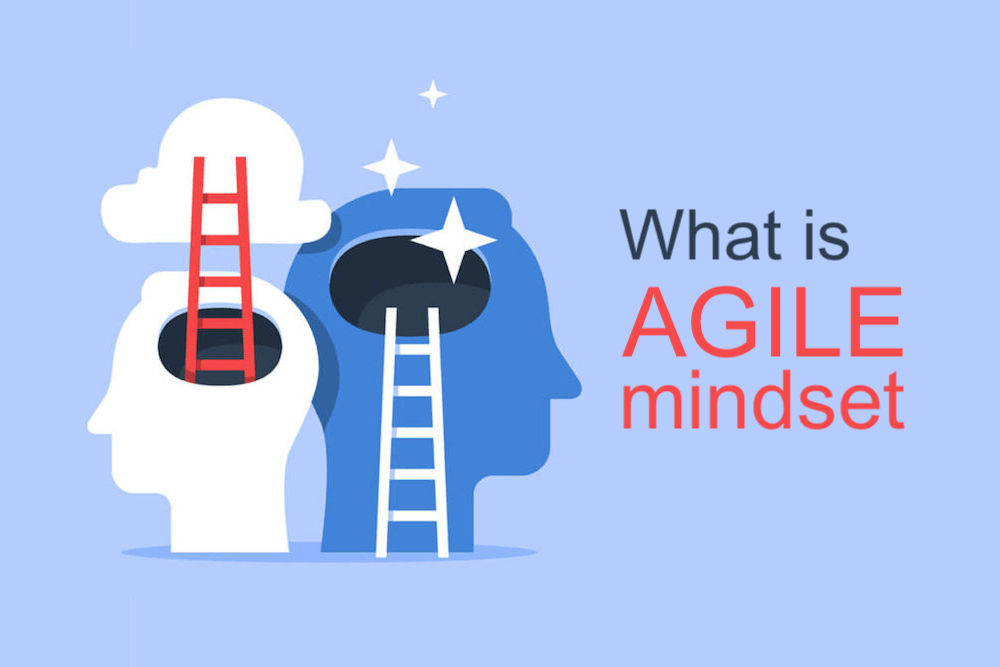Agile Mindset: Embracing Change and Continuous Improvement
The Agile mindset represents a transformative approach to work and problem-solving, emphasizing adaptability, collaboration, and a commitment to continuous improvement. This exploration delves into the core principles of the Agile mindset, providing insights into how individuals and organizations can cultivate this mindset to thrive in an ever-changing and complex world.
1. Embracing Change as a Constant
At the heart of the Agile mindset is a fundamental acceptance of change as a constant and inevitable aspect of work and life. We'll explore how individuals and teams can shift their perspective to view change not as a disruption but as an opportunity for growth, learning, and innovation.
2. Agile Values and Principles
The Agile Manifesto outlines key values and principles that guide the Agile mindset. We'll delve into these foundational concepts, including prioritizing individuals and interactions over processes and tools, responding to change over following a plan, and delivering value iteratively. Understanding and internalizing these values is central to embracing the Agile mindset.
3. Collaborative and Cross-Functional Teams
"What Is Agile" thrives on collaborative and cross-functional teamwork. We'll discuss how fostering a culture of collaboration, where individuals from different disciplines work together seamlessly, enhances creativity, problem-solving, and the ability to respond effectively to changing requirements.
4. Customer-Centric Focus
An Agile mindset places a strong emphasis on understanding and meeting customer needs. We'll explore how adopting a customer-centric focus, incorporating user feedback, and delivering incremental value ensure that products and solutions align closely with customer expectations and provide maximum impact.
5. Iterative and Incremental Progress
Agile advocates for iterative and incremental progress. We'll discuss how breaking down work into small, manageable increments allows for continuous feedback, adaptation, and the ability to respond swiftly to changing priorities. This iterative approach fosters a sense of achievement and progress at each stage.
6. Continuous Learning and Adaptation
A core tenet of the Agile mindset is a commitment to continuous learning and adaptation. We'll explore strategies for creating a learning culture within teams and organizations, where individuals are encouraged to experiment, reflect on outcomes, and adapt their approaches based on newfound insights.
7. Transparency and Open Communication
Transparent and open communication is foundational to the Agile mindset. We'll discuss how creating an environment where information flows freely, and team members feel empowered to share their perspectives fosters trust, collaboration, and a shared understanding of goals and challenges.
8. Agile Leadership and Empowerment
Agile leadership focuses on empowering individuals and teams. We'll explore how leaders can create an environment that encourages autonomy, accountability, and a sense of ownership among team members, fostering innovation and resilience in the face of change.
9. Embracing Failure as a Learning Opportunity
In the Agile mindset, failure is not viewed as a setback but as a valuable learning opportunity. We'll discuss how individuals and teams can shift their perspective on failure, embracing it as a natural part of experimentation and innovation, and using it to drive continuous improvement.
10. Agile Rituals: Sprint Review, Retrospective, and Daily Standup
Agile rituals, including Sprint Review, Retrospective, and Daily Standup, are integral to the Agile mindset. We'll explore how these ceremonies provide structured spaces for reflection, collaboration, and improvement, reinforcing the values and principles of the Agile mindset.
11. Scaling the Agile Mindset in Organizations
Scaling the Agile mindset beyond individual teams is a strategic imperative for organizations. We'll discuss how leaders can cultivate and propagate the Agile mindset across departments and entire organizations, creating a culture that thrives on adaptability, collaboration, and continuous improvement.
12. Overcoming Resistance and Nurturing Change
Adopting an Agile mindset may encounter resistance. We'll explore strategies for overcoming resistance to change, including fostering a shared understanding of Agile principles, providing education and training, and actively involving team members in the transformation process.
Cultivating an Agile mindset is not just about adopting a set of practices; it's a profound shift in how individuals and organizations approach work, change, and collaboration. Whether you're a team member, leader, or organizational stakeholder, this guide promises valuable insights into embracing the Agile mindset, enabling you to navigate complexity, embrace change, and foster a culture of continuous improvement in your professional journey.

Comments
Post a Comment